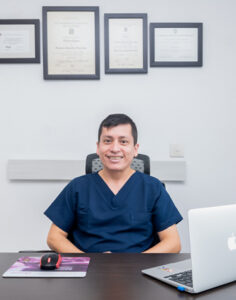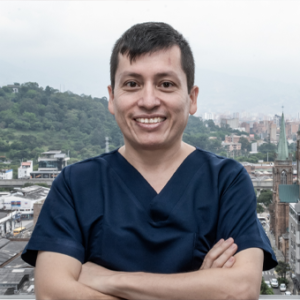Small Intestinal Bacterial Overgrowth (SIBO) is an increase in the number of bacteria found in the small intestine.
In this organ there are less than 1000 bacteria per milliliter but in the case of SIBO these become hundreds of thousands or millions. These bacteria migrate from the colon or large intestine to the small intestine.
The increased number of bacteria causes a state of inflammation, which disrupts the intestinal barrier (leaky gut) or interferes with the absorption of nutrients
It also favors immune reactions that cause allergies, increased sensitivity to food or autoimmune problems.
The most common symptoms are pain or distention in the abdomen, diarrhea, flatulence, excessive bowel sounds, belching, weight loss, indigestion or heaviness. Do these annoyances sound familiar to you?
Other non-digestive symptoms that are common can be dullness or mental exhaustion and fatigue.
When you have these discomforts and you do not have an explanation of what causes them, I advise you to find out if you have SIBO

What can cause SIBO bacterial overgrowth?
There are three main causes that favor the appearance of SIBO:
Changes in the normal anatomy of the small intestine
Any intervention that touches or damages the small intestine can cause SIBO in the future. For example, if you have had a gastric bypass, peritonitis or have undergone radiotherapy
There may also be anatomical defects such as diverticula or strictures due to inflammation or tumors.
Abnormal movement of the small intestine
Diseases or conditions that slow down the movement of the small intestine will favor the proliferation of bacteria. It is like when the water stops flowing and puddles or swamps form and become contaminated.
Diabetes or hypothyroidism are very common problems that serve as examples. Also using opiate pain medications (morphine, hydrocodone) or just getting older.
SIBO is a leading cause of diarrhea and weight loss in older adults
Alteration of the defenses of the small intestine
When the things that normally protect the gut are disrupted, SIBO can occur.
For example, Gastric acid, bile, and juice from the pancreas kill bacterias in small bowel. If there is cirrhosis, pancreatic diseases or gastric acid is decreased by omeprazole, there is a greater risk of bad bacteria proliferating
Our defenses can also be altered if we are malnourished, eat poorly or are overweight
Diagnosis of SIBO Small Intestinal Bacterial Overgrowth
Duodenal fluid culture
It is considered the most important test (Gold Standard) for the diagnosis of this condition.
The test consists in that during an upper digestive endoscopy, through a special probe, the liquid that is normally in the duodenum is aspirated and this is sent for culture.
In this way, the amount of bacteria that exist is known and a sensitivity test can be taken to antibiotics.
Has the advantage that it is more precise, but it is invasive as it requires an endoscopy and, furthermore, not all laboratories analyze this sample. In practical terms, only in very few places is it done.
SIBO Bacterial Overgrowth Breath Test
In this exam, you take an envelope of lactulose dissolved in water and you are going to blow on a piece of equipment every 20 to 30 minutes for two to three hours.
When there are more bacteria than normal in the small intestine, they break down lactulose, increasing the amount of hydrogen gas which is expelled with the breath and that is why we can measure it in the breath.
The advantage of this test is that it is easy, non-invasive, and cheaper, but it has the disadvantage that it is less precise than culture.
What can I do if I have SIBO?
The first thing I advise you is to do the SIBO test if you were diagnosed with irritable bowel but do not improve with treatments 😦
It’s also a good idea to look for SIBO if you’re still sick and your tests don’t have a clear explanation of what’s happening to you.
If you already have the diagnosis of SIBO bacterial overgrowth, I advise you the following 👉 :
Discover and correct (as long as possible) the roots of the problem. Sometimes the background or studies you have are enough
In other cases, more examinations must be done, such as an examination of the small intestine by Capsule Endoscopy.
You will need to take antibiotics for two weeks. The objective of these is not to destroy the bacterial flora of the intestine but to eliminate excess bacteria. During the consultation I will advise you on the most appropriate one for you.
Analyze what you are doing with your diet. If you take care of yourself too much or restrict yourself too much and you are still sick, it is not a good idea to continue with this plan.
If you are on the other side, start by making adjustments to habits such as stopping eating junk or processed things 🍕 🍔 🌭
Another thing you can consider is a variant of the low FODMAPS diet. It is an option when you have relapsed from SIBO or if you do not want to take antibiotics.
If you want to know if you have SIBO bacterial overgrowth of the small intestine schedule your appointment for consultation or breath test.
Call us at 📲 3207571313 or write to us on WhatsApp
Greetings,

Mauricio González Hernández
Your Gastroenterologist in Medellín







